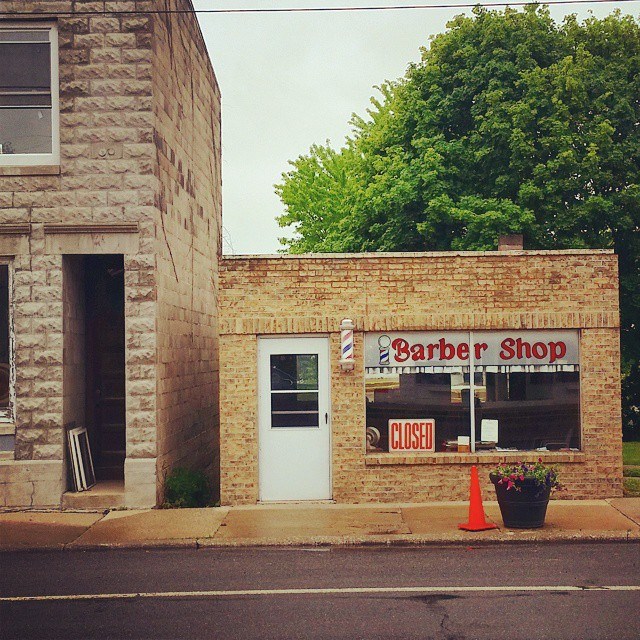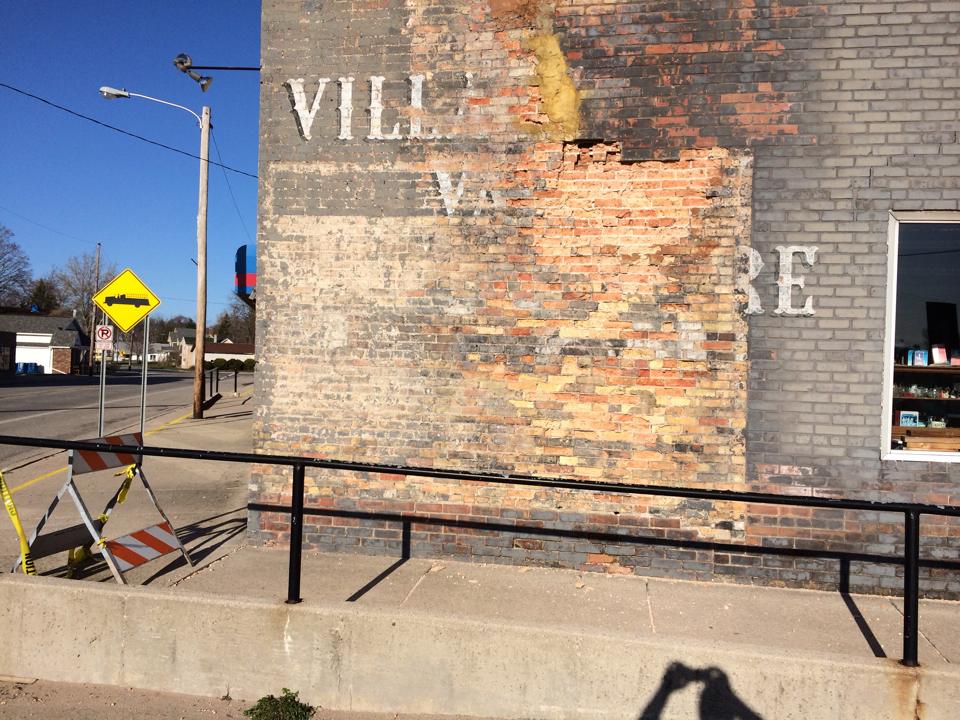Small Towns can Live. But Only if We Don’t Let Them Die
I spent last week in my hometown of Bear Lake, Michigan, with my wife, parents, extended family, and friends. Monday was Independence Day, and the following Friday and Saturday were “Bear Lake Days”. Because Northern Michigan is beautiful in the summer, it’s always been a tradition for all of my aunts and uncles and cousins to come up for the 4th, and because I love my hometown, I try to get back for Bear Lake Days every year if possible.
If you know me, or if you’ve ever read anything I’ve written, you know I’m fiercely proud of my hometown. Last week though, as I drove into town for the first time I felt ashamed. And angry.
Bear Lake has always had issues. There’s always been poverty and drugs and a lack of decent jobs. And ever since I’ve been alive there have been a couple of abandoned, blighted buildings in downtown. But in the last few years the abandoned buildings have gone from being the exception to the rule. First the Bear Lake Bar, where I spent many an evening drinking $1.25 Bud Lights with friends, went out of business. Then the “Village Variety Store” which has always been a stretch to call an “open business” closed its doors for good. Now it’s decaying to the point that they have the road on one side closed off so people don’t get hit with falling bricks. Then the bank closed, leaving a big empty building which serves the exclusive function of supporting a still functioning ATM. The café closed. Basically the only things left are an auto parts store, two “antique” shops which seem to be open sporadically at best, and a single chair barber shop which will undoubtedly close when Hugh, the elderly barber, retires or dies. That and a bunch of empty buildings in varying states of decay. You could pick up the main drag of Bear Lake and drop in on Chene or Gratiot in Detroit and it wouldn’t look a bit out of place.

Hugh’s Barber Shop
The sad thing, the infuriating thing, is that it didn’t have to be like this. When people talk about the decline of small towns they tend to fall into two camps. One group looks at small town America with rose colored glasses and denies that a decline is even happening. To these people, the blight, the drugs, the poverty, the emptying out, are just minor blips, nothing to worry about in the long term. Distressingly, many people in leadership roles in our towns, as well as at state and federal levels seem to fall into this camp. The other camp shrugs and says that the decline of small towns is inevitable (or even, in the case of certain smug urban liberals I’ve met, a good thing). These attitudes, when held up to even the tiniest bit of criticism are, of course, bullshit. It’s obvious to anyone that has driven a few miles of two lane roads anywhere in the US that there are small towns all over the country that look like Bear Lake. It should be equally obvious that a select few have avoided that fate through good planning and policy.
The majority of the buildings in downtown Bear Lake are owned by two families. One that has owned a bunch (including the variety store) forever, and let them fall into decay, and another that has recently purchased closed businesses and held on to them for what seems to be real estate speculation. In a town as small as Bear Lake, one or two families owning a few buildings each can basically determine the future of the commercial district. What these two families either don’t realize, or are two callous to care about, is that by sitting on an empty property, they not only contribute to the decay of that individual building, but to the decay of the entire community, and the loss of valuable tourist dollars to neighboring towns. They aren’t passively allowing the town to collapse, they are actively destroying it.

The Village Variety Store. Always an eyesore, now a collapsing danger to the public.
I’ve heard enough rumors about people wanting to move businesses into those buildings that at least some of them have to be true. In every case, they were denied by these families. Maybe the families didn’t think their offer was high enough. Maybe, as some have claimed, they nurse a grudge that is manifested in their spitefully empty storefronts. But the fact of the matter is there is no policy tool that allows the township or county to remedy this situation. If we were to develop legislation with the specific goal of reviving our small towns, specific tools for towns of under 2,000 residents to redevelop their commercial districts, rather than a cookie cutter approach that says what’s good for Detroit and Bloomfield Hills must be good for Bear Lake, then perhaps we could have that brewery or bakery, rather than a collapsing building or empty storefront. There should be a law that allows townships to seize commercial properties from the owners if they have sat empty for a certain number of years, and sell them to the best business that bids on it, the business that would provide the most benefit to the community. Then a large percentage of the sale price could be paid back to the original owners.
I realize this is a radical proposal, but we have to stop looking at the core of our towns as only individual properties. They are not. They directly impact all residents of the community. We need to understand that the public interest trumps an (already well off) private individuals desire to make a few bucks. Developing a policy like this is possible. It just takes political courage. The courage to admit that our small towns are in crisis, as well as the courage to say we’re not going to allow them to die.
On Friday night for Bear Lake days, my friend’s band was playing a gig. My wife, myself, and two friends walked over with a backpack of beer to check out the show. We walked past all the empty buildings, and I tried not to get too frustrated, but as the show started I felt content. Events like this are designed to attract tourists, but later in the evening they tend to go back to their cottages (or maybe to Frankfort, the town 20 minutes away with lots of fudge and “cute” shops). On this evening, the people trickling in were almost all locals. The band sounded great, and as they launched into a medley of 80’s covers an elderly couple went into the parking lot and started line dancing. In no time flat a handful of middle aged couples joined them. Then a whole mess of little kids. By the third song there were probably 30 people dancing a spontaneous line dance, in an empty parking lot, between an abandoned pizza place and an abandoned real estate office. Little kids flitted between them, older people watched, laughing, and a fuchsia sun set over Hugh’s barber shop.
I don’t know what’s going to happen to the buildings in my hometown, or in small towns all over the country. I don’t know if small businesses will ever be allowed to thrive there, if we have the political will to stop treating these places as disposable. I worry about it a lot.
But I’m not worried about the people. We’re gonna take care of each other. We’re gonna be alright.